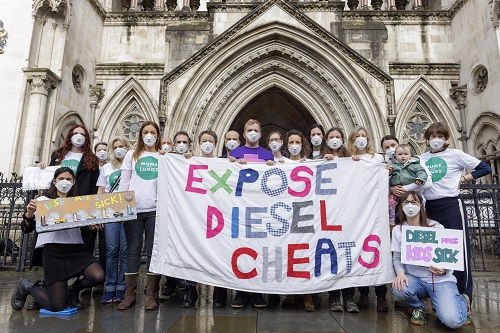The number of 'unlawful killing' verdicts returned by coroners' courts after work deaths is expected to rise, with a knock-on effect of higher legal costs and reputational damage for employers.
Opinion
Workplace death inquests: ruling could have major impact
In November 2020, the Supreme Court reached a judgment that has changed long-accepted coronial law and practice concerning the ‘standard of proof’ that is needed to reach a conclusion of suicide or unlawful killing in inquests.
The Supreme Court’s majority decision in R (on the application of Maughan) v. Her Majesty’s Senior Coroner for Oxfordshire held that short form coronial conclusions of suicide and unlawful killing can now be decided on a civil standard.
Previously, evidence to support a conclusion of unlawful killing, whether murder, manslaughter or infanticide, had to reach a criminal standard – beyond reasonable doubt. The criminal standard is more stringent than the civil standard of proof – the balance of probability.
 Peter James is partner and head of health, safety and environment at BLM law firm.
Peter James is partner and head of health, safety and environment at BLM law firm.
Whether this decision is correct is moot, but there is no doubt it will have an impact on inquests, Coroners, families of the deceased and the individuals or organisations suspected of causing or contributing to the death. In particular, it could have significant repercussions for workplace death inquests.
The judgment
The judgment concerned the 2016 death of James Maughan in HMP Bullingdon, who was found hanged within the prison. At the inquest, the jury, on the balance of probabilities, held that Mr Maughan intended to hang himself. However, the Coroner stated that a conclusion of suicide could be not be safely reached as the jury ‘could not be sure beyond reasonable doubt’ that Mr. Maughan had intended to kill himself.
Suicide is a controversial and emotive conclusion for an inquest to reach. Families often want to avoid a suicide conclusion for social/religious reasons, a point evidenced in this inquest, as the family of Mr Maughan did not want a finding of suicide that was contrary to their Roman Catholic beliefs. Mr Maughan’s family brought a claim for a judicial review to establish that the jury’s conclusion of suicide was unlawful.
After reaching the Supreme Court, this claim has now been dismissed with the Justices deciding that the standard of proof for suicide and unlawful killing should now adhere to the lower civil standard. Lady Arden, one of the Supreme Court Justices, concluded that the criminal standard could result in suicides being under-recorded. Societal attitudes to suicide had changed and the role of inquests has developed to be concerned with investigating the deaths to determine the facts, not pursuit of criminal justice and apportion of blame or guilt.
Lady Arden also held that this civil standard of proof must also apply to the short form conclusion of unlawful killing to ensure a consistency of approach. For a conclusion of unlawful killing to be reached, a Coroner or jury must now find the following to be established:
- The existence of the duty of care
- A breach of that duty of care
- The risk of death (not just serious injury) was a reasonably foreseeable consequence of misconduct
- The breach caused the death
- Having regard to the risk of involved, the misconduct was grossly negligent so as to be condemned as a serious crime of manslaughter.
The impact
It is more likely that an ‘unlawful killing’ conclusion could be reached by adopting the civil standard of proof, on the balance of probability, rather than the criminal standard, beyond reasonable doubt. With regard to workplace deaths, the judgment is likely to have widespread impact on the following groups.
Families of the deceased
In many inquests, particularly those involving accidents at work where a coroner must summon a jury, it has become common practice for the family of the deceased to press the coroner to allow a jury to reach a conclusion of unlawful killing if there is evidence of a failure to follow safe working practices and procedures or guidelines issued by the regulator. With the standard of proof reduced to the civil standard, coroners are likely to face an increasing number of submissions to leave a possible conclusion of unlawful killing to a jury..
Organisations and employers
Organisations and employers involved in inquests as interested persons are more likely to face a conclusion of unlawful killing where there is evidence of the failings highlighted above. Those advising and representing employers are likely to take a more robust approach to the inquest in terms of disclosure, privilege and expert evidence. Expert evidence obtained by the Coroner is more likely to be challenged with properly interested persons (PIPs – whether families or employers) obtaining their own evidence to establish whether there was a breach of duty, whether that breach could be said to be grossly negligent, if there was a risk of death as a consequence of the breach and whether the breach caused the death. Inquests are likely to become more adversarial and mirror criminal and civil trials.
This approach will require greater resources and increase the cost of preparation and representation at an inquest. Insurers providing cover for representation at inquests are likely to see increased claims for costs including the instruction of experts.
Coroners
Coroners are likely to come under far greater pressure to leave a conclusion of unlawful killing where the evidence suggests shortcomings on the part of employers and/or other individuals. As indicated above, those representing families and other PIPs are likely to try to call expert evidence. This is likely to extend the inquest process and result in greater numbers of pre-inquest review hearings to manage the evidence. Many inquests are likely to take longer to conclude with more witnesses and expert evidence. The Coronial Service is under resourced and is likely to be put under more strain while bracing itself for inquests arising out of the coronavirus pandemic.
Police investigations and Crown Prosecution Service (CPS)
Juries are likely to reach a conclusion of unlawful killing in greater numbers now the standard of proof has been reduced. Current practice following a conclusion of unlawful killing is to refer the matter to the Director of Public Prosecutions, the police and CPS to reconsider whether there is sufficient evidence and a public interest in bringing a prosecution for gross negligence or corporate manslaughter.
There is potential now for the CPS or police to conclude there is insufficient evidence to pursue a criminal case for manslaughter. This would then go to inquest, where there is every chance a Coroner and jury reach a conclusion of unlawful killing, based on the balance of probabilities. The case would then have to be referred back to the police for a second investigation – creating a paradox of sorts. For employers and individuals named as PIPs, there is the increasing prospect of a further criminal investigation after being advised by the police or CPS they will not be prosecuted for gross negligence/corporate manslaughter.
The decision in Maughan is going to have a profound impact on the inquest process. Families will see the reduced burden for unlawful killing as a greater opportunity for justice. For employers and others identified as PIPs, there is a greater prospect of a conclusion of unlawful killing that may involve months of further investigation and uncertainty and as well as significant reputational and financial damage. The face of the coronial process has changed significantly, for all involved.
Click here for the full judgment.
Peter James is partner and head of health, safety and environment at BLM law firm.
OPINION

Heat at work: a silent killer
By Halshka Graczyk and Lacye Groening, ILO on 07 April 2025
Workers across the world are increasingly being exposed to excessive heat with serious implications for their safety and health. It is therefore vital that governments, employers and workers’ organisations develop, share and implement practical and low-cost strategies and measures for effectively reducing the risk from heat stress at work.

Making good work the foundation
By Mike Robinson FCA, British Safety Council on 07 April 2025
In 2024, for the first time, the UK dropped out of the list of the top 20 happiest countries: according to the World Happiness Index. This year, the UK rests in 23rd place, slightly ahead of the US and behind the Nordic countries, Germany, the UAE and others.

The air we share: why tackling pollution protects us all
By Scott Paul, Mums for Lungs on 04 April 2025
Air pollution is often invisible; its impact is anything but. Whether you’re a parent worried about your child’s lungs, a construction worker breathing exhaust fumes, or a commuter passing through busy streets, polluted air is everyone’s problem.



